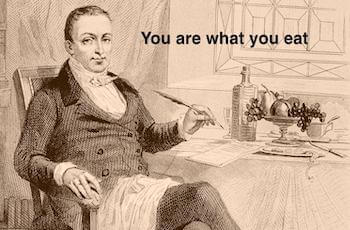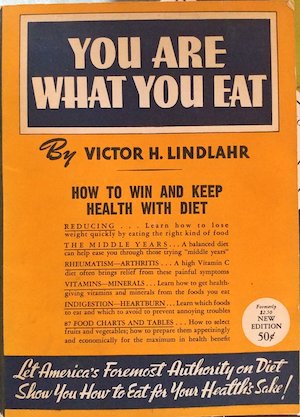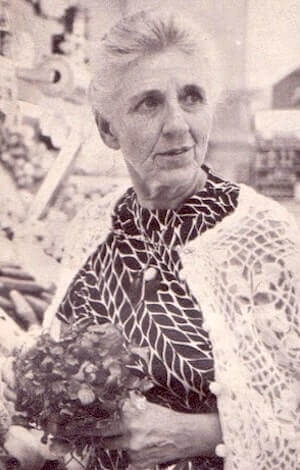The proverbial saying 'You are what you eat' is the notion that to be fit and healthy you need to eat good food.
What's the origin of the phrase 'You are what you eat'?

was Anthelme Brillat-Savarin.
His version was 'Tell me what you eat
and I will tell you what you are'
'You are what you eat' has come to into the English language by quite a meandering route.
In 1826, the French lawyer Anthelme Brillat-Savarin wrote, in Physiologie du Gout, ou Meditations de Gastronomie Transcendante:
"Dis-moi ce que tu manges, je te dirai ce que tu es."
[Tell me what you eat and I will tell you what you are].
In an essay titled Concerning Spiritualism and Materialism, 1863/4, Ludwig Andreas Feuerbach wrote:
"Der Mensch ist, was er ißt."
[Man is what he eats]
Neither Brillat-Savarin or Feuerbach meant their quotations to be taken literally (that would be rather messy). They were stating that that the food one eats has a bearing on one's state of mind and health. Although they coined French and German variants of 'you are what you eat', the phrase didn't migrate into other languages and wasn't used in English until decades later.
'You are what you eat' emerged in English in the 1930s. That's when the American nutritionist Victor Lindlahr, who was a strong believer in the idea that food controls health, developed the Catabolic Diet. That view gained some adherents at the time and the earliest known printed example is from an advert for beef in a 1923 edition of the Bridgeport Telegraph, for 'United Meet [sic] Markets':
"Ninety per cent of the diseases known to man are caused by cheap foodstuffs. You are what you eat."

Lindlahr coined and popularised
the expression 'You are what you
eat'.
In 1942, the phrase entered into the public consciousness when Lindlahr published You Are What You Eat: how to win and keep health with diet. Lindlahr is likely to have also used the term in his radio talks in the 1930s to 50s (now lost unfortunately), which would also have reached a large US audience.
The phrase wasn't much used in the years after Lindlahr stopped his radio broadcasts in 1953 but got a new lease of life in the 1960s hippie era. The food of choice of the hippie champions of the 'you are what you eat' idea was macrobiotic whole-food and the phrase was adopted by them as a slogan for healthy eating.

Adelle Davis.
The belief in the diet in some quarters was so strong that when Adelle Davis, a leading spokesperson for the organic food movement, contracted the cancer that later killed her, she attributed the illness to the junk food she had eaten at college.
Some commentators have suggested that the idea is from much earlier and that it has a religious rather than dietary basis. Roman Catholics believe that the bread and wine of the Eucharist are changed into the body and blood of Jesus (Transubstantiation).
So, is the phrase catabolic or Catholic?
Transubstantiation certainly links food and the body, but there doesn't appear to be any documented link between the belief and the phrase. It's safe to assume the origin is more about supper than supplication.
There are several claimants to the coinage of 'you are what you eat' but there's no doubt that it was Victor Lindlahr who brought it to general public attention.
